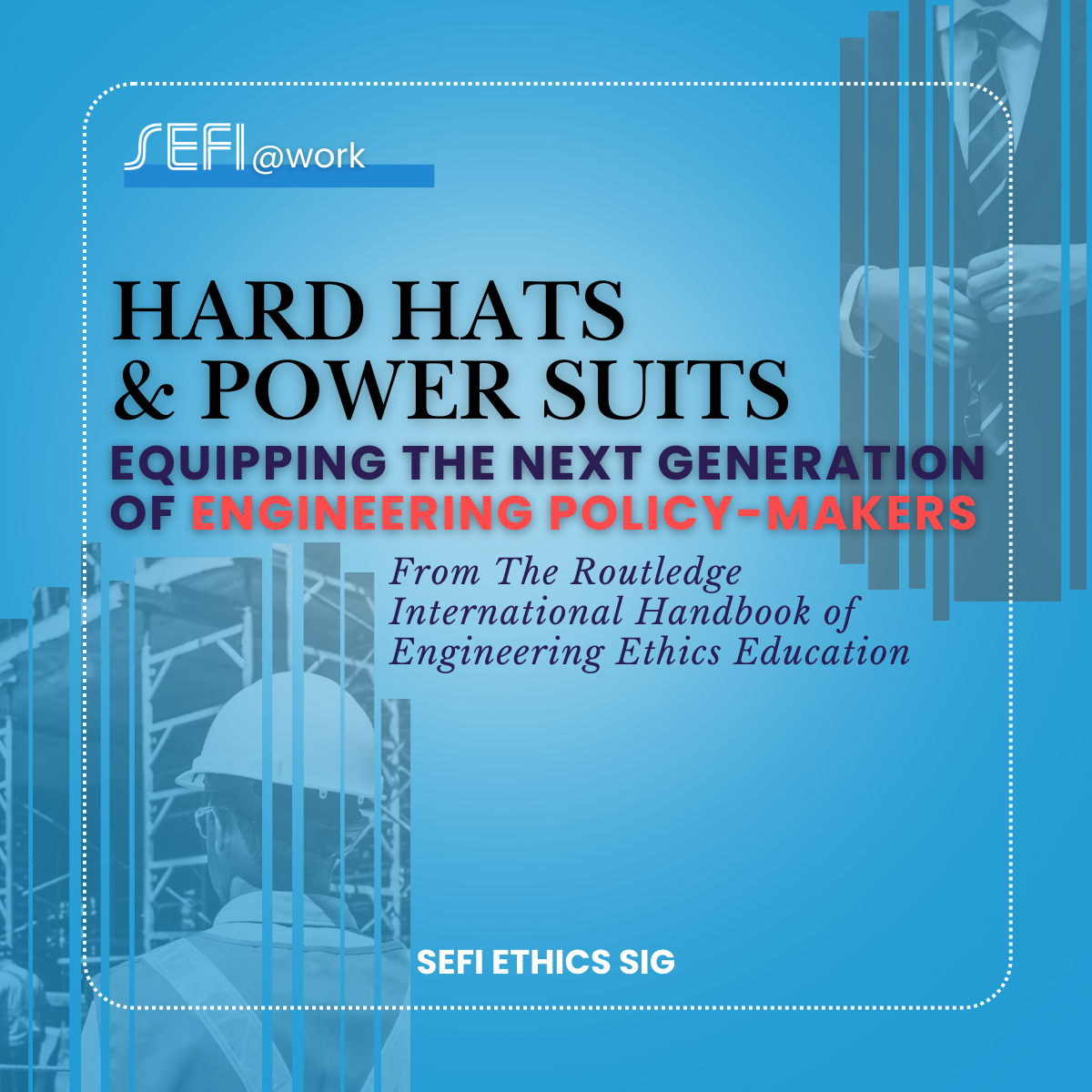Empathy, care, and attention in engineering education: Global and multidisciplinary perspectives Date: 20-24 April 2026 (9:00-17:30…

TU Wien, Austria
Being aware of normative and applied ethics and how these might be relevant in our everyday professional live comprises a necessary skill for modern engineers. However, educating upcoming engineers on ethics also requires us to attend to critical thinking and theories — something that is currently missing from most engineering curricula. If we take our responsibility towards the societies our artefacts operate within seriously, we need to equip engineers with the skills of critically assessing the power dimensions involved in the definitions, deliberations and delineations of ethics.
In its applied form in research and practice, ethics is often institutionalised as a form of compliance, oriented on avoiding repercussions within legal frameworks. Here, ethical conduct is mostly anticipatory and reactive with little guidance as to how to proactivelypro-actively imagine how we might do things differently or how to reflect on the ethical implications of previous projects for ongoing and future ones. This is where critical thinking comes into play. It allows us to assess power dimensions within a given status quo and encourages reflection especially when outcomes of a given choice might not be known or knowable to the engineers involved.
I would be remiss here, if I failed to mention the Critical Engineering Manifesto of the Critical Engineering Working Group, which does fundamental outreach work. However, I argue, we need to put critical thinking more explicitly in the context of ethics education in engineering. By teaching those side by side, we prepare future engineers to attend to the challenges of our time, understand global issues around inequities, climate change and fast evolving pandemics and responding to them with solutions that are not only fair, but oriented on justice, sustainability, and equity.
Teaching engineering students how to identify norms in existing artefacts, technologies and code introduces them to practices of actively reflecting on their works and learning how to constructively critique others. This forms the first step towards a critical ethics education in engineering. In previous work, I identified a range of provocations for engineers to get accustomed to these practices. For example, I suggest the use of plurals, to not talk about ’the use case’ but rather discuss multiple use cases from the start to open up to notions of appropriation and/or mis-use.; I suggest to reflect on our own privileges, the ways we are enabled to literally engineer the worlds people live in, and after making those explicit, to use them with critical intent.; I suggest then to make ourselves open for critique and to listen to it, discard those intentions and instead focus on the effects our creations have on people, particularly minoritised individuals. A; and I suggest to learn for ourselves and then teach our students to acknowledge that everything we create is riddled with imperfections that we cannot foresee. Doing so has the potential to keep us humble in light of the responsibilities towards our environments, and illustrates the concrete benefits of critical thinking in technology design, implementation, and use. Critical thinking offers us the foundation to commit to ethical conduct in engineering oriented not on compliance with legal frameworks, but instead on notions of care for the worlds we live in.


